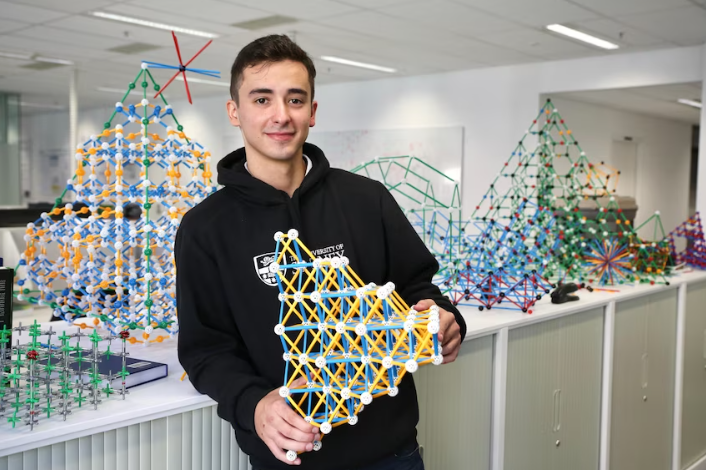Introduction
In the modern era, technology evolves at an astonishing pace, unlocking solutions to complex problems that were once deemed impossible. Quantum computing, a revolutionary leap in computing technology, is at the forefront of this transformation. It is redefining what we can achieve and setting the stage for an exciting future.
The comparison between quantum computing and classical computing isn’t just apples and oranges; it’s comparing future potential with established norms. The focus of this comprehensive article is to explore which problem is more effectively solved using quantum computing rather than classical computers?
How Does Quantum Computing Outperform Classical Computing for Specific Tasks?
Quantum Parallelism in Problem-Solving
Quantum computers leverage the power of quantum parallelism, allowing them to process a multitude of solutions simultaneously. Unlike classical computers that can process only one solution at a time, quantum systems can explore all possible solutions at once. This incredible capability makes them efficient in solving certain problems that classical computers struggle with.
Quantum Optimization
Quantum optimization goes far beyond classical optimization techniques. It’s capable of finding the optimal solution to complex problems in a fraction of the time required by classical methods. Whether it’s financial modeling or logistics planning, quantum optimization can lead to groundbreaking solutions.
What Are Some Examples of Problems Solved Faster with Quantum Computing?

Quantum Chemistry Simulations
In quantum chemistry simulations, quantum computers offer unprecedented accuracy. They can simulate the behavior of molecules and atoms in a way that classical computers cannot. This opens doors for revolutionary advancements in drug discovery and material science.
Quantum Factorization
Quantum computing’s prowess in quantum factorization can break down large numbers into their prime factors exponentially faster than classical computers. This has significant implications for cryptography, making current encryption methods obsolete while also paving the way for new, more secure encryption techniques.
Are There Limitations to Quantum Computing’s Capabilities?

Though promising, quantum computing also faces challenges, like quantum error correction and stable quantum gate operations. These issues are areas of intense research and are rapidly evolving, promising even more potential in the near future.
Real-World Applications of Quantum Machine Learning and More

Can Quantum Computers Revolutionize Drug Discovery and Material Science?
Yes, by simulating molecular interactions, quantum computers are poised to unlock new drugs and materials with unprecedented efficiency.
How Do Quantum Annealing Approaches Address Complex Problems?
Quantum annealing offers an entirely new way to find optimal solutions to complex problems by navigating the landscape of possible solutions in ways classical computing cannot fathom.
Can Quantum Computing Simulate Quantum Systems More Accurately?
Quantum Simulation
One of the most promising aspects of quantum computing lies in quantum simulation. Classical computers often struggle to simulate quantum systems due to the sheer complexity of quantum behaviors. However, quantum computers, by their very nature, can simulate these systems more accurately.
Quantum simulations allow scientists to model complex quantum interactions within materials or chemicals. This has far-reaching implications in material science, helping in the discovery of new materials with unique properties, and in understanding biological systems at the quantum level.
The Power of Quantum Annealing in Solving Complex Problems
Quantum Annealing Applications
Quantum annealing is a powerful technique that employs quantum properties to find the global minimum of a complex problem. Traditional methods often get stuck in local minimums, but quantum annealing explores the entire solution space effectively.
This approach has a wide range of applications, including traffic optimization, financial modeling, and even understanding complex physical phenomena. The inherent quantum advantage makes this process faster and more accurate than classical approaches.
How Does Quantum Error Correction Enhance Computation?
Quantum Error Correction
A significant challenge in quantum computing is maintaining coherence and controlling errors. Quantum error correction addresses these issues by applying algorithms that detect and correct errors during computation. This process ensures that quantum computers remain stable and reliable, paving the way for more robust real-world applications.
The Role of Entanglement in Quantum Problem-Solving
Quantum Entanglement
Quantum entanglement is a fundamental phenomenon in quantum physics where particles become interconnected. This interconnection allows for instant communication between entangled particles, regardless of distance. In quantum computing, entanglement is utilized to link quantum bits (qubits) together, enhancing computational efficiency.
This property opens up entirely new avenues in communication and problem-solving that classical computers can’t even approach. It also leads to more efficient algorithms and even secure communication systems.
Can Quantum Computing Solve Large-Scale Optimization Problems Efficiently?
Quantum Large-Scale Optimization
In industries like logistics, transportation, and energy, solving large-scale optimization problems is crucial. Quantum computing’s ability to process multiple solutions simultaneously gives it a significant edge in tackling these large-scale problems. Solutions that would take classical computers centuries to find can be achieved by quantum computers in mere hours or even minutes.
What Are the Latest Advancements in Quantum Computing Technology?
Quantum Computing Breakthroughs
Quantum computing is witnessing rapid advancements. From improved quantum gate operations to progress in quantum state manipulation, the field is constantly evolving. Recent achievements include more stable qubits, novel quantum algorithms, and even the early stages of quantum internet.
These advancements are not just theoretical; they are translating into practical applications across various industries, signaling a new era of innovation and growth.
How Do Quantum Computers Impact Computational Chemistry?
Quantum Impact on Computational Chemistry
In computational chemistry, the ability to model molecular structures and reactions is crucial. Quantum computers provide a more nuanced understanding of chemical reactions at the quantum level. This can lead to significant advancements in areas like pharmaceuticals, energy storage, and environmental protection, among others.
What Is Shor’s Algorithm and Its Implications for Cryptography?
Shor’s Algorithm and Cryptography
Shor’s algorithm is a quantum algorithm known for factoring large numbers exponentially faster than the best-known algorithms running on classical computers. This has profound implications for cryptography since most current encryption techniques rely on the difficulty of factoring large numbers.
The advent of Shor’s algorithm signals the need for new cryptographic methods that are resistant to quantum attacks, giving rise to the growing field of post-quantum cryptography.
Quantum Machine Learning – A New Frontier
Quantum Machine Learning Applications
Quantum machine learning integrates quantum algorithms with machine learning techniques, allowing for faster and more complex computations. It opens up new possibilities for data analysis, pattern recognition, and predictive modeling.
Quantum machine learning can transform sectors like healthcare, finance, and logistics by offering new insights and making predictions that were previously unattainable with classical computing.
Explaining the Relationship Between Quantum Computing and Superposition
Quantum Superposition
Quantum superposition is a fundamental principle in quantum mechanics where a quantum system can exist in multiple states simultaneously. In quantum computing, superposition is harnessed to allow qubits to represent both 0 and 1 at the same time, unlike classical bits.
This property is key to the parallel processing capabilities of quantum computers, enabling them to work on multiple computations simultaneously. It is this characteristic that gives quantum computers their immense processing power and speed.
Quantum Complexity Theory – A Deep Dive
Quantum Complexity Theory
Quantum complexity theory studies the complexity of problems solvable by quantum computers. It explores how quantum computers can solve problems more efficiently and categorizes problems based on their “quantum complexity.”
This field helps in understanding the true potential and limitations of quantum computing, providing insights into the practical applications and guiding future research and development.
The Evolution of Quantum Fourier Transform in Algorithms
Quantum Fourier Transform
The Quantum Fourier Transform (QFT) is an essential component of many quantum algorithms, including Shor’s algorithm. It’s a quantum analogue of the classical Fourier transform and plays a vital role in analyzing the frequency components of a quantum state.
QFT enables faster and more efficient problem-solving, making it a cornerstone of quantum algorithm design.
FAQs About which problem is more effectively solved using quantum computing rather than classical computers
Can Quantum Computers Break Encryption?
Quantum computers have the potential to break current encryption methods, but they also provide the tools to create even more secure encryption techniques.
What Challenges Are Associated With Building and Maintaining Quantum Computers?
Quantum computers require extreme precision, temperature control, and error correction. These challenges are being addressed through constant innovation and research.
What Is the Significance of Quantum Fourier Transform in Algorithms?
Quantum Fourier Transform plays a crucial role in several quantum algorithms, including Shor’s algorithm. It enables faster processing and has broad applications in quantum computing.
Also Read: Which Element of Accenture’s Applied Quantum Computing Strategy Directly Delivers Value to Clients?
Final Reflections
Quantum computing stands as a beacon of human innovation and scientific exploration. It transcends traditional barriers and opens up new vistas of understanding and potential. Its integration with various fields and its distinct advantage over classical computing is not merely a technological evolution; it’s a paradigm shift.
With robust research, investment, and interdisciplinary collaboration, quantum computing will continue to redefine our world, turning what was once deemed impossible into achievable reality.
In wrapping up this article, we aspire to have given you a comprehensive understanding of “which problem is more effectively solved using quantum computing rather than classical computers?” and its implications, arming you with the knowledge necessary to navigate this area successfully.

